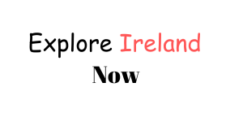Ireland, known for its lush landscapes, rich history, and friendly locals, has become a popular destination for foreigners seeking new opportunities. Whether you’re drawn by the vibrant culture, the thriving economy, or the chance to improve your English, Ireland offers a wide range of job opportunities for expats. In this article, we’ll explore the best jobs in Ireland for foreigners, breaking down the industries, required skills, and tips for landing your dream job.
Why Work in Ireland?
Before diving into the best jobs, let’s look at why Ireland is such an attractive destination for foreign workers:
- Strong Economy: Ireland has one of the fastest-growing economies in Europe, with a strong focus on technology, pharmaceuticals, and finance.
- English-Speaking Country: As an English-speaking country, Ireland is a great place for non-native speakers to improve their language skills while working.
- Friendly Immigration Policies: Ireland offers work visas and permits for skilled workers, making it easier for foreigners to settle and work legally.
- High Quality of Life: With excellent healthcare, education, and work-life balance, Ireland is a great place to live and work.
- Cultural Diversity: Ireland is home to people from all over the world, creating a welcoming environment for foreigners.
Top Industries for Foreign Workers in Ireland
Ireland’s job market is diverse, but some industries stand out for offering excellent opportunities for foreigners. Here are the top sectors to consider:
- Information Technology (IT)
- Healthcare
- Finance and Accounting
- Engineering
- Hospitality and Tourism
- Education
- Construction
- Pharmaceuticals and Life Sciences
- Customer Service and Support
- Retail
Let’s explore each of these industries in detail.
1. Information Technology (IT)
Ireland is often referred to as the “Silicon Valley of Europe” due to the presence of major tech companies like Google, Facebook, Apple, and Microsoft. The IT sector is booming, and there’s a high demand for skilled professionals.
Popular IT Jobs in Ireland:
- Software Developer
- Data Analyst
- Cybersecurity Specialist
- IT Project Manager
- Cloud Engineer
Skills Required:
- Proficiency in programming languages (e.g., Java, Python, C++)
- Experience with cloud computing platforms (e.g., AWS, Azure)
- Strong problem-solving skills
- Certifications (e.g., CompTIA, Cisco, AWS)
Average Salary:
| Job Title | Average Salary (EUR) |
|---|---|
| Software Developer | €45,000 – €70,000 |
| Data Analyst | €40,000 – €60,000 |
| Cybersecurity Specialist | €50,000 – €80,000 |
| IT Project Manager | €60,000 – €90,000 |
| Cloud Engineer | €50,000 – €75,000 |
2. Healthcare
Ireland’s healthcare system is always in need of skilled professionals, especially nurses, doctors, and caregivers. The country offers excellent training and career growth opportunities in this field.
Popular Healthcare Jobs in Ireland:
- Registered Nurse
- General Practitioner (GP)
- Pharmacist
- Healthcare Assistant
- Physiotherapist
Skills Required:
- Relevant qualifications (e.g., nursing degree, medical license)
- Strong communication skills
- Compassion and empathy
- Ability to work in a fast-paced environment
Average Salary:
| Job Title | Average Salary (EUR) |
|---|---|
| Registered Nurse | €35,000 – €55,000 |
| General Practitioner (GP) | €70,000 – €120,000 |
| Pharmacist | €50,000 – €80,000 |
| Healthcare Assistant | €25,000 – €35,000 |
| Physiotherapist | €40,000 – €60,000 |
3. Finance and Accounting
Dublin, Ireland’s capital, is a major financial hub in Europe. Many multinational companies have their European headquarters here, creating a demand for finance and accounting professionals.
Popular Finance Jobs in Ireland:
- Accountant
- Financial Analyst
- Tax Consultant
- Auditor
- Investment Banker
Skills Required:
- Knowledge of accounting software (e.g., QuickBooks, SAP)
- Strong analytical skills
- Attention to detail
- Professional certifications (e.g., ACCA, CPA)
Average Salary:
| Job Title | Average Salary (EUR) |
|---|---|
| Accountant | €40,000 – €60,000 |
| Financial Analyst | €45,000 – €70,000 |
| Tax Consultant | €50,000 – €80,000 |
| Auditor | €45,000 – €65,000 |
| Investment Banker | €60,000 – €100,000 |
4. Engineering
Ireland’s growing infrastructure and industrial sectors have created a demand for engineers in various fields, including civil, mechanical, and electrical engineering.
Popular Engineering Jobs in Ireland:
- Civil Engineer
- Mechanical Engineer
- Electrical Engineer
- Biomedical Engineer
- Environmental Engineer
Skills Required:
- Relevant engineering degree
- Proficiency in CAD software
- Problem-solving skills
- Strong technical knowledge
Average Salary:
| Job Title | Average Salary (EUR) |
|---|---|
| Civil Engineer | €45,000 – €70,000 |
| Mechanical Engineer | €40,000 – €65,000 |
| Electrical Engineer | €45,000 – €70,000 |
| Biomedical Engineer | €50,000 – €75,000 |
| Environmental Engineer | €40,000 – €60,000 |
5. Hospitality and Tourism
Ireland’s thriving tourism industry offers plenty of opportunities for foreigners, especially in hotels, restaurants, and travel agencies.
Popular Hospitality Jobs in Ireland:
- Hotel Manager
- Chef
- Tour Guide
- Event Coordinator
- Bartender
Skills Required:
- Customer service skills
- Multilingual abilities (a plus)
- Flexibility and adaptability
- Relevant experience in the industry
Average Salary:
| Job Title | Average Salary (EUR) |
|---|---|
| Hotel Manager | €35,000 – €60,000 |
| Chef | €30,000 – €50,000 |
| Tour Guide | €25,000 – €40,000 |
| Event Coordinator | €30,000 – €45,000 |
| Bartender | €20,000 – €30,000 |
6. Education
Ireland’s education system is highly regarded, and there’s a demand for teachers, especially in subjects like English, math, and science.
Popular Education Jobs in Ireland:
- Primary School Teacher
- Secondary School Teacher
- English as a Second Language (ESL) Teacher
- University Lecturer
- Tutor
Skills Required:
- Teaching qualifications (e.g., PGCE, TEFL)
- Strong communication skills
- Patience and creativity
- Knowledge of the Irish curriculum (a plus)
Average Salary:
| Job Title | Average Salary (EUR) |
|---|---|
| Primary School Teacher | €35,000 – €55,000 |
| Secondary School Teacher | €40,000 – €60,000 |
| ESL Teacher | €30,000 – €45,000 |
| University Lecturer | €50,000 – €80,000 |
| Tutor | €20,000 – €35,000 |
7. Construction
With ongoing infrastructure projects and a growing population, Ireland’s construction industry is booming. Skilled workers are in high demand.
Popular Construction Jobs in Ireland:
- Site Manager
- Architect
- Electrician
- Plumber
- Carpenter
Skills Required:
- Relevant trade qualifications
- Experience in construction projects
- Physical stamina
- Attention to safety protocols
Average Salary:
| Job Title | Average Salary (EUR) |
|---|---|
| Site Manager | €50,000 – €80,000 |
| Architect | €45,000 – €70,000 |
| Electrician | €35,000 – €55,000 |
| Plumber | €30,000 – €50,000 |
| Carpenter | €30,000 – €45,000 |
8. Pharmaceuticals and Life Sciences
Ireland is a global leader in pharmaceuticals and life sciences, with companies like Pfizer, Johnson & Johnson, and Novartis operating here.
Popular Jobs in Pharmaceuticals:
- Research Scientist
- Quality Control Analyst
- Pharmaceutical Sales Representative
- Biotechnologist
- Regulatory Affairs Specialist
Skills Required:
- Degree in life sciences or related field
- Attention to detail
- Strong analytical skills
- Knowledge of regulatory standards
Average Salary:
| Job Title | Average Salary (EUR) |
|---|---|
| Research Scientist | €40,000 – €70,000 |
| Quality Control Analyst | €35,000 – €55,000 |
| Pharmaceutical Sales Rep | €45,000 – €65,000 |
| Biotechnologist | €40,000 – €60,000 |
| Regulatory Affairs Specialist | €50,000 – €75,000 |
9. Customer Service and Support
Many multinational companies in Ireland have customer service centers, offering roles in support, sales, and administration.
Popular Customer Service Jobs:
- Customer Support Representative
- Call Center Agent
- Technical Support Specialist
- Sales Associate
- Administrative Assistant
Skills Required:
- Excellent communication skills
- Problem-solving abilities
- Patience and empathy
- Multilingual skills (a plus)
Average Salary:
| Job Title | Average Salary (EUR) |
|---|---|
| Customer Support Rep | €25,000 – €35,000 |
| Call Center Agent | €23,000 – €30,000 |
| Technical Support Specialist | €30,000 – €45,000 |
| Sales Associate | €25,000 – €35,000 |
| Administrative Assistant | €25,000 – €35,000 |
10. Retail
Ireland’s retail sector offers opportunities for foreigners, especially in cities like Dublin, Cork, and Galway.
Popular Retail Jobs:
- Store Manager
- Sales Assistant
- Visual Merchandiser
- Cashier
- Warehouse Operative
Skills Required:
- Customer service skills
- Sales experience
- Attention to detail
- Teamwork
Average Salary:
| Job Title | Average Salary (EUR) |
|---|---|
| Store Manager | €30,000 – €45,000 |
| Sales Assistant | €20,000 – €25,000 |
| Visual Merchandiser | €25,000 – €35,000 |
| Cashier | €20,000 – €25,000 |
| Warehouse Operative | €22,000 – €30,000 |
Navigating the Irish Work Permit System
Types of Work Permits in Ireland
If you’re a non-EU citizen, you’ll likely need a work permit to work in Ireland. Here are the most common types:
- Critical Skills Employment Permit – For high-demand jobs like IT, engineering, and healthcare.
- General Employment Permit – Covers jobs not listed under the Critical Skills category.
- Dependent/Partner/Spouse Employment Permit – For family members of employment permit holders.
Work Permit Application Process
- Secure a job offer from an Irish employer.
- Ensure your salary meets the minimum requirement (€30,000–€64,000, depending on the role).
- Apply online via the Department of Enterprise, Trade and Employment website.
How to Find a Job in Ireland as a Foreigner
Here are some useful job search websites for foreigners in Ireland:
- IrishJobs.ie – A leading job site for various industries.
- Indeed.ie – A global job search platform with Irish listings.
- Jobs.ie – A great resource for hospitality and customer service jobs.
- LinkedIn – Networking with recruiters and applying for jobs online.
You can also contact recruitment agencies that specialize in placing foreign workers in Ireland.
Tips for Finding a Job in Ireland as a Foreigner
- Research the Job Market: Understand which industries are hiring and what skills are in demand.
- Update Your CV: Tailor your CV to Irish standards and highlight relevant experience.
- Apply for a Work Visa: Check the requirements for a work visa or permit and apply in advance.
- Network: Attend job fairs, join professional groups, and connect with people on LinkedIn.
- Learn About Irish Culture: Understanding local customs and workplace etiquette can give you an edge.
- Consider Temporary Work: Temporary or contract roles can be a great way to gain experience and build connections.
- Use Job Portals: Websites like Indeed, LinkedIn, and IrishJobs.ie are great resources for job seekers.
Frequently Asked Questions (FAQs) About Jobs in Ireland for Foreigners
If you’re considering moving to Ireland for work, you likely have many questions about the job market, visa requirements, and living in the country. Below are some of the most frequently asked questions (FAQs) about working in Ireland as a foreigner, along with detailed answers to help you navigate your journey.
1. Do I Need a Work Visa to Work in Ireland?
- Answer: Yes, most non-EU/EEA citizens will need a work visa to legally work in Ireland. The type of visa you need depends on your job, qualifications, and the length of your stay. Common work visas include:
- Critical Skills Employment Permit: For highly skilled workers in demand.
- General Employment Permit: For jobs that are not on the critical skills list.
- Intra-Company Transfer Permit: For employees transferring to an Irish branch of their company.
- Working Holiday Authorization: For young people from certain countries who want to work and travel in Ireland.
2. What Are the Most In-Demand Jobs in Ireland?
- Answer: The most in-demand jobs in Ireland are in the following sectors:
- Information Technology (IT): Software developers, data analysts, and cybersecurity specialists.
- Healthcare: Nurses, doctors, and healthcare assistants.
- Engineering: Civil, mechanical, and electrical engineers.
- Finance and Accounting: Accountants, financial analysts, and tax consultants.
- Hospitality and Tourism: Chefs, hotel managers, and tour guides.
3. How Do I Find a Job in Ireland as a Foreigner?
- Answer: Here are some steps to find a job in Ireland:
- Research the Job Market: Identify industries and roles that match your skills.
- Update Your CV: Tailor your CV to Irish standards and include relevant experience.
- Use Job Portals: Websites like IrishJobs.ie, Indeed.ie, and LinkedIn are great resources.
- Network: Attend job fairs, join professional groups, and connect with people in your industry.
- Apply for Work Permits: Once you secure a job offer, apply for the appropriate work visa or permit.
4. What Is the Average Salary in Ireland?
- Answer: Salaries in Ireland vary by industry and experience level. Here are some average salary ranges:
- IT: €40,000 – €90,000
- Healthcare: €25,000 – €120,000
- Finance: €40,000 – €100,000
- Engineering: €40,000 – €75,000
- Hospitality: €20,000 – €60,000
5. Is It Easy to Get a Job in Ireland as a Foreigner?
- Answer: It depends on your skills, qualifications, and the industry you’re targeting. Ireland has a strong demand for skilled workers in sectors like IT, healthcare, and engineering. However, competition can be high for certain roles, so having relevant experience and qualifications is key.
6. Can I Work in Ireland Without Speaking English Fluently?
- Answer: While English is the primary language in Ireland, some jobs (e.g., customer service, hospitality) may require fluency. However, there are opportunities in sectors like construction, agriculture, and manual labor where language skills may be less critical. Improving your English will significantly increase your job prospects.
7. What Is the Cost of Living in Ireland?
- Answer: The cost of living in Ireland varies by location. Dublin is the most expensive city, with high rents and living costs. Other cities like Cork, Galway, and Limerick are more affordable. Here’s a rough breakdown:
- Rent (1-bedroom apartment): €1,200 – €2,000/month in Dublin; €800 – €1,200/month in other cities.
- Utilities: €150 – €200/month.
- Groceries: €200 – €300/month.
- Public Transport: €100 – €150/month.
8. What Are the Working Hours in Ireland?
- Answer: The standard working week in Ireland is 40 hours, typically spread over 5 days (Monday to Friday). Overtime is often paid for additional hours worked. Employees are entitled to at least 20 days of paid annual leave per year.
9. Can I Bring My Family to Ireland While Working?
- Answer: Yes, if you hold a valid work permit, you can apply for family reunification to bring your spouse and children to Ireland. They may also be eligible to work or study in the country.
10. What Are the Taxes Like in Ireland?
- Answer: Ireland has a progressive tax system, meaning the more you earn, the higher your tax rate. Here’s a general breakdown:
- Income Tax: 20% on income up to €40,000; 40% on income above €40,000.
- Universal Social Charge (USC): A tax on income, ranging from 0.5% to 8%.
- PRSI (Pay Related Social Insurance): A social security contribution, typically 4%.
11. What Is the Minimum Wage in Ireland?
- Answer: As of 2023, the minimum wage in Ireland is €11.30 per hour for experienced adult workers. This rate may vary for younger workers or those in training.
12. How Long Does It Take to Get a Work Visa for Ireland?
- Answer: The processing time for a work visa depends on the type of permit and your country of origin. It can take anywhere from 4 to 8 weeks for most permits. Make sure to apply well in advance of your planned start date.
13. Can I Switch Jobs While on a Work Permit in Ireland?
- Answer: Yes, but you’ll need to apply for a new work permit if you change jobs. Your new employer must meet the requirements for issuing a work permit, and the new role must align with the conditions of your original permit.
14. What Are the Benefits of Working in Ireland?
- Answer: Working in Ireland comes with several benefits, including:
- Access to a strong and growing economy.
- High-quality healthcare and education systems.
- A friendly and welcoming culture.
- Opportunities for career growth in multinational companies.
- Beautiful landscapes and a high standard of living.
15. What Should I Know About Irish Workplace Culture?
- Answer: Irish workplace culture is generally informal and friendly. Key aspects include:
- Punctuality: Being on time is important.
- Communication: Irish people value politeness and humor in communication.
- Teamwork: Collaboration and teamwork are highly encouraged.
- Work-Life Balance: Employers in Ireland prioritize work-life balance, with generous leave policies.
16. Can I Apply for Permanent Residency in Ireland?
- Answer: Yes, after legally working in Ireland for 5 years, you may be eligible to apply for long-term residency or citizenship, depending on your circumstances.
17. What Are the Best Cities to Work in Ireland?
- Answer: The best cities for jobs in Ireland include:
- Dublin: The capital and economic hub, with the most job opportunities.
- Cork: A growing tech and pharmaceutical hub.
- Galway: Known for its medical technology and tourism industries.
- Limerick: A center for manufacturing and engineering.
- Waterford: A smaller city with opportunities in retail and hospitality.
18. Are There Jobs for Non-Skilled Workers in Ireland?
- Answer: Yes, there are opportunities for non-skilled workers in sectors like:
- Hospitality (e.g., cleaning, kitchen staff)
- Retail (e.g., sales assistants, cashiers)
- Construction (e.g., laborers)
- Agriculture (e.g., farm workers)
19. What Are the Challenges of Working in Ireland as a Foreigner?
- Answer: Some challenges include:
- High cost of living, especially in Dublin.
- Competitive job market in certain sectors.
- Adapting to a new culture and workplace norms.
- Navigating the visa and work permit process.
20. Where Can I Get Help with Finding a Job in Ireland?
- Answer: You can seek assistance from:
- Public Employment Services (Intreo): Offers job search support and career advice.
- Recruitment Agencies: Specialized agencies can help match you with employers.
- Online Communities: Join expat groups or forums for advice and networking.
Conclusion
Ireland offers a wealth of opportunities for foreigners across various industries. Whether you’re a tech enthusiast, a healthcare professional, or someone looking to break into the hospitality sector, there’s something for everyone. With its strong economy, friendly people, and high quality of life, Ireland is an excellent place to build your career.
By understanding the job market, honing your skills, and preparing thoroughly, you can find a rewarding job in Ireland and enjoy all that this beautiful country has to offer. Good luck with your job search!
Note: This article is intended as a general guide. Always check the latest visa requirements and job market trends before making any decisions.

Hi, I’m Tanvir, the founder and author of Explore Ireland Now. With a deep love for Ireland and its rich culture, history, and landscapes, I created this site to share everything that makes this beautiful country worth exploring. Whether you’re a local looking for hidden gems or a traveler planning your next adventure, I provide insightful guides, tips, and recommendations to help you experience Ireland to the fullest.
From stunning landscapes to vibrant cities and quaint villages, Ireland is full of wonders waiting to be discovered. Through my personal experiences and research, I aim to bring you the most up-to-date information and inspiration for your journey.
Thank you for visiting Explore Ireland Now—I hope my content helps you uncover all that this incredible country has to offer! If you have any questions or need travel advice, feel free to reach out.



